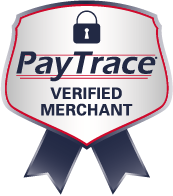If If you aren’t using data to analyze your inbound marketing campaigns, you aren’t taking advantage of marketing on the Internet. Plenty of campaigns bear similarities to traditional forms of marketing–display networks are akin to billboards, video advertising has parallels with TV commercials, and so on. But billboards and TV commercials can’t touch what makes their online counterparts so incredibly valuable.
That’s right, it’s data. Everything is trackable online, from the clicks a consumer makes online to the user profiles of those online consumers, even to the length of time those consumers spend on a single web page–everything can be documented in data. These troves of information can offer incredible insights to marketers when they are properly analyzed.
To do that, you need an analytics solution. Many are available online, and some of the best ones come at a low-cost, or even for free. You need at least one of these solutions to help guide your strategy going forward, as you make small strategy shifts that optimize each campaign. Here’s an overview of the best options.
1. Google Analytics
Google Analytics is the obvious go-to for most businesses. It’s simple to use, offers in-depth data, and is geared toward small business owners. Even if you do struggle to understand the platform, there are a number of tutorials that walk you through the basic processes you will need to know in order to maximize the value of Google Analytics.
And there’s incredible value: not just because it’s a great data tool, but also because it’s free when you integrate it with Google AdWords. If you’re doing paid search campaigns, AdWords is a no-brainer, even before you through in Google Analytics for free.
2. Moz Analytics
If you’re focused on analytics for search marketing purposes, Moz Analytics is a great solution. It specializes in using data to improve SEO performance for various campaigns, and it offers a wide range of data to help you track your results. Moz Analytics also accommodates social media marketing and content marketing efforts, too, but if your primary focus is search marketing, this could be the right tool for you.
Moz Analytics costs $99 per month, which isn’t cheap for small businesses. But if you make an earnest effort to use the data when improving your campaigns, it’s a great option.
3. KISSmetrics
The great thing about KISSmetrics: its platform is beautiful. Users can navigate the solution easily, and it offers great data analysis that offers some insights and perspectives you won’t find with other solutions.
The biggest barrier for most businesses is going to be the cost. KISSmetrics packages start at $150 per month and go up. Additionally, the data isn’t comprehensive when it comes to traffic analysis, so you will probably need to complement KISSmetrics with another analytics tool that gives great Web traffic insights.
4. Clicky
 Straddling the line between free and subscription-based, Clicky has a lot to offer small businesses. It has comprehensive analytics tools that rival what Google Analytics has to offer, and there’s no delay in receiving that data–results can be monitored in real-time.
Straddling the line between free and subscription-based, Clicky has a lot to offer small businesses. It has comprehensive analytics tools that rival what Google Analytics has to offer, and there’s no delay in receiving that data–results can be monitored in real-time.
The biggest challenge of Clicky is that it isn’t the easiest platform to use. If you’re averse to technology already, it may be more of a headache than it’s worth. But keep in mind that Clicky is completely free until you surpass 3,000 page views. In other words, you get some time to get the hang of things–and to start driving traffic to your website–before you’re asked to put money down.
If you’re ready to start analyzing data and building your digital strategy, contact DBC Digital today.



